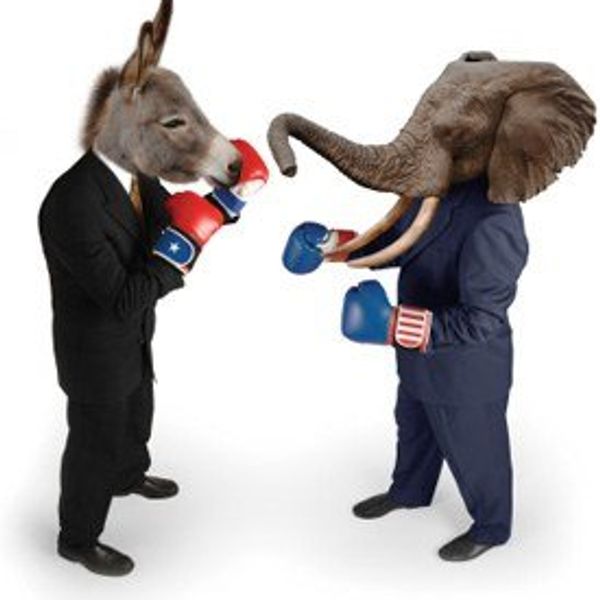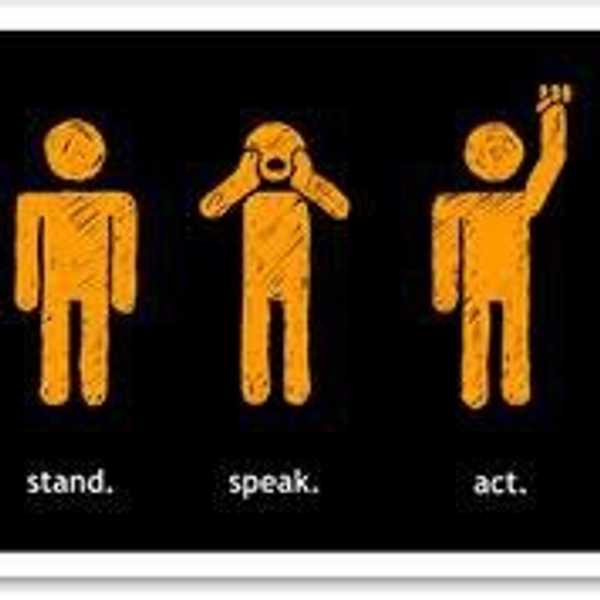It's definitely election season again. Negative ad campaigns have started yet again and they are only going to get worse from here on out. In my talks with a lot of "educated voters," I've come to one conclusion: they have no idea how the presidential voting process even works! It's just so crazy to me that people can claim to be an educated voter and not know the roll of the electoral college. So, in order to combat this ignorance, let me briefly go over what actually happens during a presidential election. That way, when you talk to someone like me again, you'll actually know what in the world you're talking about.
So, lets start at birth. To become a president of the United States, you have to be born in the United States. Shocking, I know... Then, after that, you have to be at least 35 years old and have lived in the United States for 14 years. Whoever made up these numbers probably just picked a number between 30 and 40 and a number between 1 and 15, but nobody challenges it, so that's what we're stuck with. After you've met these requirements, you're now eligible to become president of the United States. Go you! Well, maybe. The thing is, a lot of other people in the US want to be the president, too, and they each have their own ideas and opinions that they've developed over the years. The people with similar ideas and opinions on certain topics all belong to the same political party. Typically, it has always been Republicans versus Democrats, but there is some pushback from Libertarians and Independents who challenge the two-party political system in America -- that's another article for another time. Back to the two main parties. This is where primaries and caucuses come into play. Candidates from each party campaign throughout the country in order to win the favor of their party members. Difference between a primary and a caucus? In a primary, party members vote for the best candidate that will represent them in the general election. In a caucus however, party members select the best candidate through a series of "discussions" and votes. This is the EXTREMELY dulled down version. I'm just trying to keep it simple because this is a lot of info to cover.
Okay, that was step one. Step two is that each political party holds a national convention to select a final presidential nominee. It is at these conventions where the candidate chooses a running mate who will become vice president if they win. This person typically makes up for the major candidates shortcomings, whether they be lack of experience, lack of knowledge on certain policies or just to make up for lack of personality within the presidential candidate. The Republican convention is about to happen this week, where Donald Trump will announce his Vice President to be Indiana Governor Mike Pence. After the convention each party's candidate travels the country campaigning to win the support of the general population. Most candidates know where they are supported, where they are not supported and where the "swing" states are. Swing states are typically divided in their political affiliation and thus mean a great deal in the political scene.
Step four is the general election. This is where every registered voter in the US vote for one President and one Vice President. Simple right? Wrong. This is where so many people are confused, and I'm gonna fix that right here by letting you in on a little secret. You aren't actually voting for a President or Vice President. "*Gasp!* What do you mean?" Well, when you vote, you are actually voting for a group of people known as electors. These people are a part of the electoral college. In the electoral college system, each state gets a certain number of electors based on the state's representation in Congress. Each elector casts one vote following the general election and the candidate who gets more than half of the elector votes wins! (That's 270 votes, by the way.)
This is the difference between popular vote and electoral vote. I know it makes no sense and it's outdated, but that's how the system works! What people may also not know is that your popular vote does have a huge impact on the race! Let's say you're me. I live in Alabama and I'd be willing to bet my freakishly-low paycheck that Donald Trump will win this state. So if I vote for Trump, that means virtually nothing. If I vote for Hillary, my vote means even less. But if I vote for a third party candidate like Gary Johnson, then he has a better chance at getting into the major presidential debates. Personally, I'd much rather see an educated and informed debate instead of a screaming match between Trump and Hillary both shouting, "No, you're worse than me!"
So, that's the beginners course in the Presidential election process. You are now an informed and educated citizen. Congrats! Here's your cookie / diploma / whatever you want to call it. Now use your knowledge to help inform other voters, because your vote actually does matter. Just not in the way you thought it did.





















